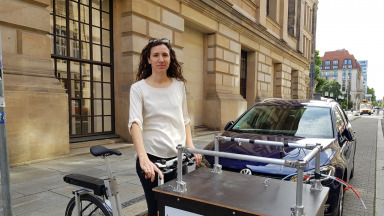Headline:
Air Quality
Greenhouse gas emissions from human sources have increased dramatically since the dawn of the Industrial Revolution. This has led to a 40 per cent increase in the atmospheric concentration of CO2 since 1750. There is strong scientific consensus that climate change and its various effects, including global warming and rising sea levels, are driven by these processes. Key sources of greenhouse gas emissions are also often major sources of air pollutants such as ozone precursors and particulate matter. The World Health Organisation (WHO) estimates that air pollution is responsible for seven million premature deaths worldwide each year – and this figure is growing. In addition, climate change and air pollution both have severe impacts on agricultural production and consequently on food security. While distinct issues, there are many connections between climate change and air quality. Clearly, reducing greenhouse gas and air pollutant emissions is critical to curbing climate change and safeguarding human health and food security.








